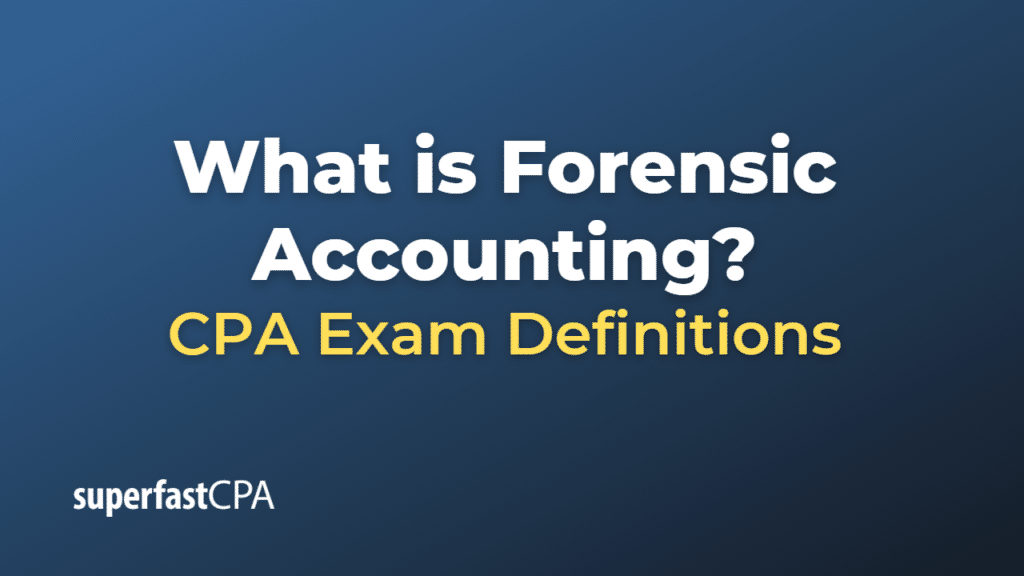Forensic Accounting
Forensic accounting is a specialized area of accounting that involves investigating financial discrepancies and inaccuracies such as fraudulent activity, embezzlement, or other financial disputes. The term “forensic” means “suitable for use in a court of law,” and it is to that standard and potential outcome that forensic accountants generally have to work.
Forensic accountants combine their knowledge of accounting and finance with law and investigative techniques to determine whether an activity is illegal. Some of the duties they perform can include tracing funds, identifying assets for recovery, interpreting financial evidence, and providing litigation support. They might be called upon to testify in court as expert witnesses in cases of financial mismanagement or fraud.
Common situations that require forensic accounting include:
- Insurance Claims: Forensic accountants can be used to evaluate insurance claims, such as business interruption claims or claims of loss due to fraud or theft.
- Bankruptcy: Forensic accountants can investigate and analyze financial records to determine whether fraud or misconduct occurred prior to a company declaring bankruptcy.
- Economic Damages: In cases involving business disputes or personal injury claims, a forensic accountant may be needed to quantify the economic damages that resulted from a specific event.
- Fraud and Embezzlement: These cases often require a forensic accountant to detect, investigate, and accumulate evidence of fraudulent schemes and embezzlement.
- Divorce: In complex divorce cases, a forensic accountant may be used to trace, locate, and evaluate assets, including those that a spouse may be trying to hide.
Forensic accountants can work in a variety of settings, including public accounting firms, law offices, law enforcement agencies, insurance companies, government organizations, and financial institutions. Some forensic accountants work independently as consultants or private investigators.
Example of Forensic Accounting
Let’s consider an example of how a forensic accountant might operate:
Let’s say there’s a large corporation, “Big Corp,” that has noticed some irregularities in its financial statements. The CEO suspects that the CFO may be embezzling funds but isn’t sure how to prove it. To investigate this matter, the company hires a forensic accountant.
The forensic accountant begins by closely examining Big Corp’s financial records, looking for any unusual transactions or discrepancies. They might use a variety of techniques to do this, such as ratio analysis, horizontal and vertical analysis, and Benford’s Law analysis, which can help identify fabricated numbers in data sets.
After thorough investigation, the forensic accountant finds that the CFO has been inflating expense reports and pocketing the difference. The CFO has also been diverting some of the company’s profits to a secret bank account.
The forensic accountant compiles a detailed report outlining the evidence of embezzlement, which includes the manipulated expense reports, the illicit bank account, and a timeline of when and how the funds were diverted. This report could then be used in a court of law to prove the CFO’s misconduct.
In addition to the investigation, the forensic accountant may also suggest new internal controls and processes to prevent such fraudulent activities from occurring in the future. They may even be called to testify as an expert witness in the court case against the CFO.
This example illustrates how a forensic accountant can use their specialized skills to detect and prove fraudulent activity, assisting organizations in resolving financial discrepancies and improving their financial integrity.













